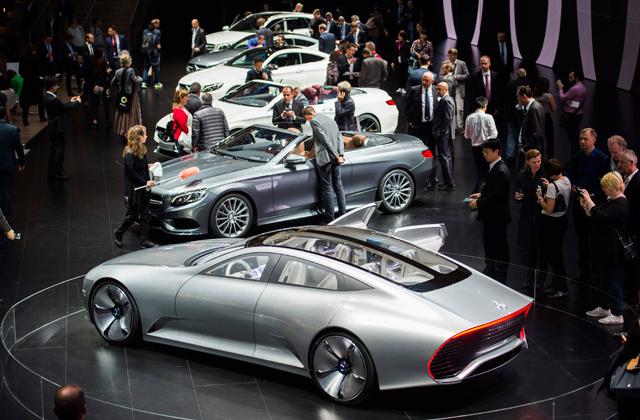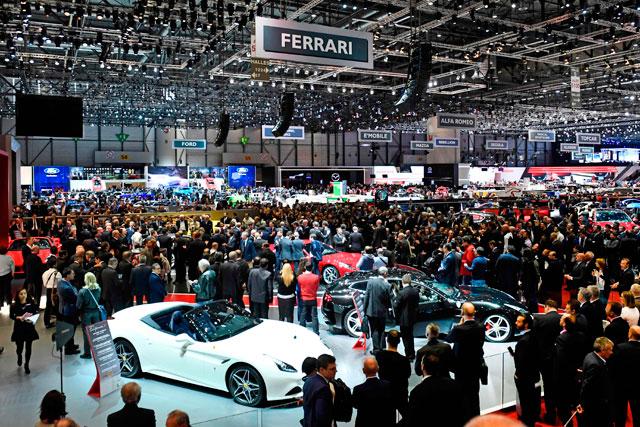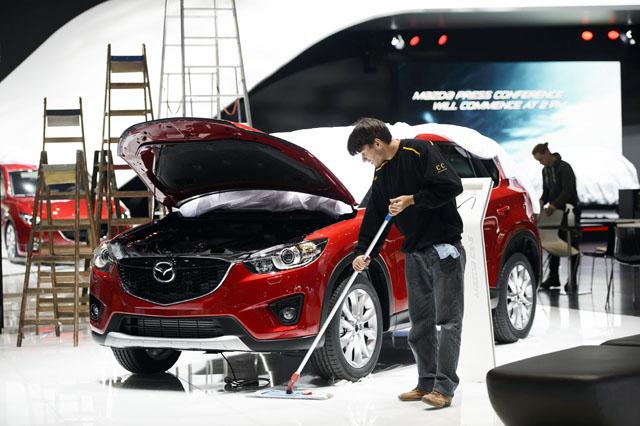You are here
Plunging German car production heralds year of ‘transformation’
By AFP - Jan 06,2020 - Last updated at Jan 06,2020
FRANKFURT AM MAIN — Carmakers built just 4.7 million cars in Germany in 2019, industry data showed on Monday, squeezing production to its lowest level since 1997 as US-China trade tensions sapped vital foreign markets.
The powerful VDA carmakers’ club said output had tumbled nine per cent year-on-year, blaming “weaker international demand” for the fall.
The lower appetite from abroad comes on top of demanding technological change and tighter emissions restrictions complicating life for carmakers — long a pillar of Europe’s largest economy.
“The car industry faces a massive transformation,” in 2020, industry expert Stefan Bratzel of the Center for Automotive Management said.
With consumer spending buttressing the domestic market even as economic growth slowed, new registrations of cars on German roads booked an increase of five per cent, at 3.6 million.
But auto exports from Germany to the rest of the world fell even more sharply than production, tumbling 13 per cent to 3.5 million.
“The fall in car production means Germany continues to lose significance in the global auto industry,” said Ferdinand Dudenhoeffer of the Center Automotive Research.
Around the world, car markets have been battered by the effects of the American trade conflict with China.
Last year saw carmakers complain that falling global demand was eating into their business just as massive investments are needed in research and development.
‘Hefty fines’
Companies are pumping cash into high-tech projects like automated driving, and switching focus to hybrid or all-electric vehicles from internal combustion engines as they race to meet new emissions limits.
From next year, carmakers must achieve average carbon dioxide (CO2) emissions of 95 grammes per kilometre across newly-sold vehicles in the European Union, on pain of hefty fines.
“The atmosphere is comparable to when cash was switched over from Deutsche Marks to euros on January 1, 2002,” Der Spiegel magazine wrote citing industry insiders.
“The EU’s CO2 legislation is the most important reason” for the big changes set to sweep the car industry, analyst Bratzel said.
Jobs under threat
CO2 limits and other structural factors threaten the auto firms’ pride of place in the German economy.
Where in 1998 close to 12 per cent of all cars sold worldwide were produced in Europe’s powerhouse, the share has shrunk to below six per cent in 2019, Dudenhoeffer said.
Meanwhile, electric motors require less manpower to assemble than their hydrocarbon-burning predecessors, threatening some of the roughly 800,000 car industry jobs in Germany.
Also on Monday, figures from the KBA transport authority showed SUVs overtaking compact cars as the most popular class of models on the domestic market.
Many SUVs are built not in Germany but in factories operated by the country’s multinational carmakers overseas.
That in turn makes the companies more vulnerable to upsets in international trade.
In a study published in December, Dudenhoeffer forecast that German car production would begin growing again in 2021 after bottoming out this year.
“A fall in sales of 3 to 5 per cent looks likely” in 2020, consultancy EY judged in a study published Monday.
But “manufacturers have a strong interest in powerfully boosting sales of electric and plug-in hybrid cars from now on... that should be reflected in the statistics at the latest by the middle of the year,” EY added.
Related Articles
FRANKFURT AM MAIN — Hundreds of thousands of car enthusiasts are set to flock to Frankfurt’s IAA motor show in few day where auto giant
GENEVA — This year's Geneva Motor Show comes at a curious time for an auto world enjoying record profits; yet, also gripped by doubt midway
The Geneva Motor Show will kick off this week on an optimistic note as the long-suffering European car market appears to finally have swerved out of the slow lane.



















